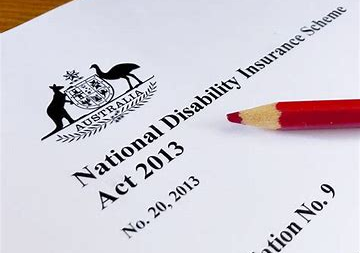CHANGES TO NDIS LEGISLATION TABLED IN PARLIAMENT – SENATE COMMITTEE COMMENCE INQUIRY
On the 28th October 2021, the Minister for the NDIS introduced a bill to the House of Representatives (Lower House) to make changes to the NDIS Act.
With the bill being introduced into the lower house, the senate referred the bill to a Senate Committee for inquiry, which is accepting submissions until 8 November 2021.
This Senate Committee will publish its report on 25 November 2021.
DIA previously analysed the proposals in the exposure draft version of this Bill here.
DIA is extensively reviewing the changes within the introduced bill and will provide a submission to Senate Committee. We have summarised our initial thoughts and developed a full ‘tracked changes’ version of the legislation to assist Intermediary Providers to make their own submissions.
DIA will publish a copy of our submission in due course.
BILL SUMMARY
In short: the Bill as tabled makes some cosmetic changes but many of our previous concerns raised in our submission remain.
The Bill, which has been touted in government circles, as simple updates and tidy ups to the legislation that are uncontroversial. DIA contents that there are more changes within the bill which are unexplained or have not been fully consulted with the sector.
After reviewing the proposed changes DIA CEO, Mr. Jess Harper, commented that:
“The proposed changes to the NDIS legislation are subtle, with the service guarantee front and centre, but when you dig deeper you realize just how many other changes are being quietly introduced, which are either not explained or glossed over. These proposed changes could change the way the scheme operates and detrimental to participants.”
DIA’s analysis and submission highlight several areas of concern that include:
- Further limiting the NDIS’s commitment to co-design;
- The potential for the changes, and therefore their interaction with existing legislation and rules, to be open to a wide spectrum of interpretation;
- The changes regarding plan variation and ‘reassessment’ focus heavily on the delegated authority;
- The proposed changes have the potential to reduce a participant’s choice and control by excluding providers and how a participant may manage their funding. These changes lack detail in terms of how participant safety or harm is identified and managed or how a participant can have these decisions reviewed;
- The removal of key wording from the Principles of the Act that arguably reduce the NDIA’s commitment to social and economic participation of participants which has implications for the human rights underpinning the NDIS and the UN Convention on the Right of Persons with Disabilities; and
- Much more…
WHAT HAPPENED TO INFORMED ENGAGEMENT
Despite the level of the proposed change, DIA is disappointed in the short and inadequate consultation and engagement with the disability sector.
DIA notes that the DSS engagement process was rushed with less that 4 weeks to review and make a submission, and now the Senate Inquiry has only provided 6 working days to make a submission. Why the rush?
DIA has heard countless accounts from the disability sector that the bill as introduced to the House of Representatives, and the exposure draft before it, are extremely difficult to navigate with lots of cross referencing and multiple changes to the same sections of legislation across different pages within the bill. To date, save for DIA’s own version above, there has been no marked up version of the legislation changes provided to clearly show what is being changed.
DIA encourages all Intermediary Providers to make a submission to the Senate Inquiry here: Make a Submission.

